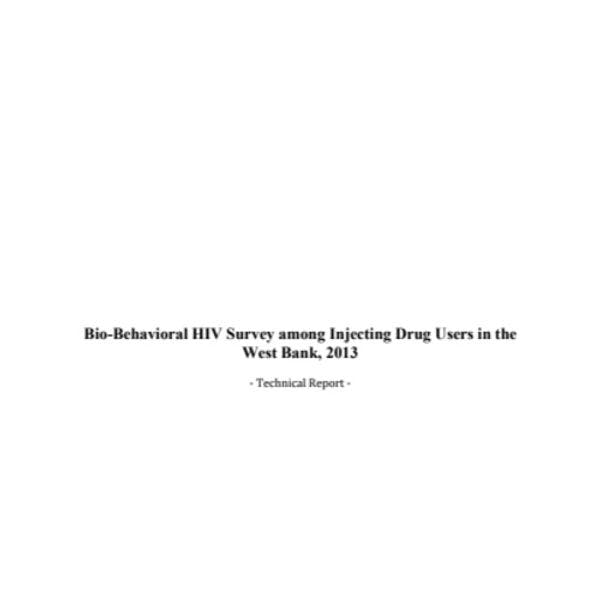Bio-behavioural HIV survey among injecting drug users in the West Bank, 2013
A bio-behavioral HIV survey among injecting drug users (IDUs) was carried out in October 2013 in Ramallah, Hebron, and Bethlehem governorates using time location sampling (TLS) methodology.
The study aimed to assess the prevalence of HIV, HBV, and HCV, as well as to analyze the patterns and correlates of HIV-relevant risk-taking behaviors. The study recruited 288 IDUs: 105 in Ramallah, 100 in Hebron, and 83 in Bethlehem.
Only one of the surveyed IDUs was female. Age range in the sample was 16-64, with the mean age of 39.2 (SD = 11.11; median age = 41). A majority of participants had only primary education or less (69.0%) and were married (59.7%). Only a quarter of the sample reported a full or part-time employment (26.2%).
No HIV cases were found in the study. Nineteen participants (6.6%) tested positive for hepatitis B surface antigen, while 117 participants (40.6%) tested positive for HCV. A small minority of participants (14.7%) answered correctly to all five standardized HIV knowledge questions (UNAIDS, 2013).
However, when asked specifically about HIV risks related to injecting drug use, most participants seemed well-informed: 94.1% correctly stated that HIV can be transmitted by syringe sharing, while 88.9% knew that sharing a needle or syringe washed in water may result in getting infected with HIV. HIV knowledge was highest in Bethlehem and lowest in Hebron, but the differences were slight.
Keep up-to-date with drug policy developments by subscribing to the IDPC Monthly Alert.
Downloads
Regions
Related Profiles
- World Health Organization (WHO)
